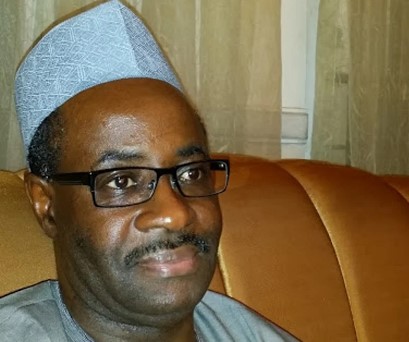President Bola Tinubu’s economic strategy, as articulated by Budget Office Director-General Tanimu Yakubu, rests on a tripod of foreign exchange reforms, ambitious infrastructure investments, and a robust energy sector. These three pillars, according to Yakubu, are designed to create a more stable and prosperous Nigeria, shifting the nation from a state of economic fragility to one built on solid foundations. The administration’s initial focus on currency reform, particularly floating the naira and addressing a substantial backlog of foreign exchange liabilities, aimed to restore investor confidence and create a more predictable economic environment for businesses and individuals alike. This move, coupled with efforts to channel remittances through official channels, has led to a strengthening of the naira, transforming it from a liability to a valuable economic tool. This renewed stability benefits various sectors, easing import costs for businesses, reducing uncertainty for students studying abroad, and signaling a commitment to honoring financial obligations, which is crucial for attracting foreign investment.
The second pillar, a significant investment in infrastructure, particularly in the transportation and energy sectors, is designed to reduce business costs and enhance market connectivity across the country. Yakubu highlights the administration’s substantial expenditure on projects in the North-West, emphasizing the nationwide benefits of improved infrastructure. Key projects, including the Kaduna-Kano Expressway, Kano-Maiduguri Highway, and Sokoto-Illela Corridor, are expected to significantly reduce travel times and logistics costs for agricultural producers and traders. Moreover, the strategic positioning of Lagos as a logistics hub aims to seamlessly connect northern agricultural produce to southern ports and facilitate trade between eastern manufacturers and western markets. This focus on infrastructure development transcends regional considerations, serving as a unifying force that binds the nation together.
The third crucial element of Tinubu’s economic strategy is the prioritization of the energy sector. Yakubu underscores the importance of electricity in maximizing the impact of infrastructure development. He argues that reliable power supply is essential for industrial growth, enabling factories to operate extended shifts and create more jobs. Furthermore, access to electricity enhances healthcare services by ensuring the proper functioning of essential medical equipment, like vaccine refrigerators, and improves the quality of life for children, who can study under electric light instead of relying on kerosene lamps. The administration also emphasizes the role of renewable energy sources, particularly in promoting equitable access to power. Examples like solar irrigation projects in Zamfara demonstrate how renewable energy can empower agricultural communities and enhance livelihoods.
Tinubu’s vision, according to Yakubu, builds upon the foundation laid by his predecessor, Muhammadu Buhari. Buhari’s focus on signature projects, including railways, bridges, and the Second Niger Bridge, provided a crucial starting point. Tinubu aims to expand upon these achievements, transforming linear infrastructure into interconnected networks, creating a more comprehensive and robust system. This continuity in infrastructure development represents a collaborative effort, with Buhari laying the groundwork and Tinubu building upon it, demonstrating a shared commitment to national development. The focus on infrastructure, particularly a national beltway connecting Calabar, Maiduguri, and Sokoto, coupled with work on the Badagry-Lagos Expressway, the Illela-Sokoto corridor, and the Lagos-Calabar Coastal Super Highway, highlights the ambition and scope of the administration’s infrastructure agenda.
Despite these ambitious plans, challenges remain. Nigeria’s history of stalled projects and escalating costs poses a significant risk. Inflation continues to impact households, even as reforms benefit exporters. Security concerns, particularly banditry, can disrupt even the most well-developed infrastructure. Furthermore, the vulnerability of foreign exchange stability persists in the absence of deeper financial markets. These challenges underscore the complexity of the economic landscape and the need for continued vigilance and adaptability.
Nevertheless, Tinubu’s wager, as Yakubu explains, is based on a clear set of principles. Currency credibility is seen as a driver of competitiveness, enabling Nigerian businesses to compete effectively in the global market. Strategic infrastructure investments aim to integrate the nation into a single, unified market, facilitating seamless trade and economic activity. And finally, reliable access to power is viewed as essential for boosting productivity and improving living standards. This integrated approach, encompassing currency reform, infrastructure development, and energy sector expansion, reflects a long-term vision for transforming Nigeria’s economy and building a more resilient and prosperous future. The overarching goal is to move the nation from a state of fragility to one grounded on solid foundations, ensuring sustainable economic growth and improved living standards for all Nigerians.














